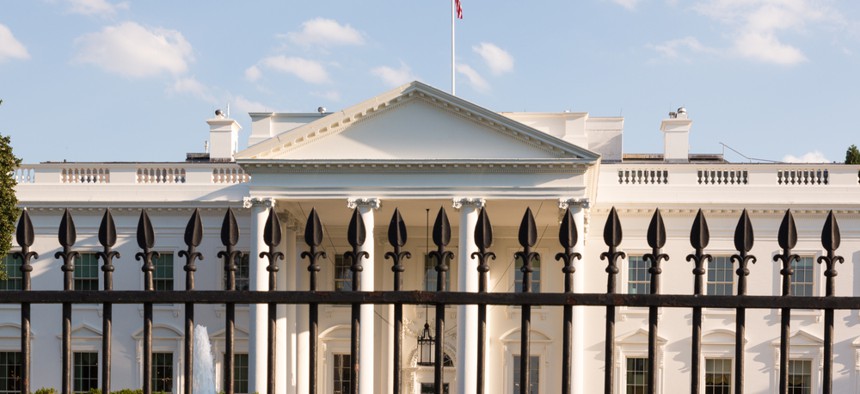
Steve Heap/Shutterstock.com
More Equality, Less Work: Obama's America, According to the CBO
Two of the White House's biggest initiatives—health care reform and raising the minimum wage—will both result in fewer workers, according to Washington's budget oracles. Should you care?
The Obama administration has benefited quite a bit from its analysis of a number of policy issues, including the fiscal stimulus and immigration reform. But there is currently a chill in the relationship between the White House and the Congressional Budget Office that has spilled into the media over the agency’s estimates of the labor market effects of two of President Obama’s most important policy efforts.
The non-partisan CBO, widely respected on both sides of the aisle and among economists, is correctly viewed as one of the few truly honest brokers in Washington, and certainly one of the most powerful. Washington is fixated on the politics, but no matter which political party gains from any given CBO report, the most useful course of action is to focus on the economics and lessons therein.
And with Obamacare and the minimum wage, the lesson is simple: Any given policy always has costs and benefits.
With Obamacare, the White House and the left have almost exclusively emphasized the benefits of the program. And benefits there are. Obamacare gives subsidies to low- and middle-income households to aid them in the purchase of health insurance. All else equal, these subsidies make those households better off.
Despite what many on the right implicitly suggest, alleviating “job lock”—offering insurance outside the employer-employee relationship—is also a benefit. The economy would be more efficient if workers didn’t need to stay in a job because of the fear of going uninsured. In fact, Obamacare does not do enough to mitigate job lock. It certainly doesn’t do too much.
According to the CBO, some workers will likely leave the workforce because they no longer need to work in order to have health coverage. In my opinion, contrary to many on the right, this is not primarily a case of the government negatively distorting decisions. The most important government distortion in this space occurred decades ago when wage controls incentivized firms to compensate workers by providing them with health insurance, along with the tax exemption for those employer-provided health benefits. Obamacare partially undoes this pre-existing, government-caused, and economically harmful distortion. It seems odd to suggest that this is a negative feature of Obamacare.
The same is not true, however, for the distortion caused by Obamacare’s insurance subsidies. By providing households with a transfer payment to purchase health insurance that phases out as labor market income grows, Obamacare discourages work—period. The subsidy shrinks with income. That means for every additional dollar you earn, you lose a bit of support from Obamacare.
The White House and its allies have characterized this as a good thing, and as a free choice that households are making. This characterization insults basic economics reasoning. People electing to work less because the government has raised their marginal income tax rates is not quite an independent choice that deserves our congratulations. And since the health care subsidies are paid for by progressive taxes, this creates an awkward scenario where higher-income families are subsidizing the newfound leisure time of the less fortunate.
So the CBO has confirmed what many economists already knew: Obamacare has both positive and negative features. On the plus side, more people can afford health insurance, and fewer workers feel trapped in jobs they hate because they rely on the company for care. On the negative side, the insurance subsidies impose high marginal income tax rates that discourage work. (There are other plusses and minuses as well, of course.)
There is a similar story with the minimum wage. The White House and its allies have been arguing that the minimum wage is basically a free lunch: There will be negligible job losses, and millions of workers will get a raise. The CBO rejected this talking point.
To be fair, there is considerable debate among economists as to whether and how much an increase in the minimum wage will decrease employment. But my opinion is that the weight of the evidence points to a noticeable decrease in employment among low-skill workers. The CBO agrees, arguing that an increase in the federal minimum wage to $10.10, as the president is proposing, will likely cause hundreds of thousands of jobs to disappear relative to a world without the minimum wage increase.
As with Obamacare, the CBO is showing that there are tradeoffs in minimum wage policy. On the one hand, a lot of workers get a raise. On the other hand, they'll be competing for fewer jobs.
Public policy is the hard business of balancing tradeoffs. I believe that the tradeoffs in Obamacare suggest a significant restructuring: Requiring catastrophic instead of comprehensive coverage will reduce the bad effects of Obamacare will maintaining an essential benefit. Likewise, I wouldn’t raise the minimum wage: The government should not implement a policy that has a good chance of costing thousands and thousands of people their jobs. This is doubly true when there are much better alternatives to help the working poor, like expanding the earned income tax credit.
But I would never say that the president’s policies only have costs. And, as the CBO reminded all of us, the White House should stop saying that the president’s policies only have benefits.
(Image via Steve Heap/Shutterstock.com)






